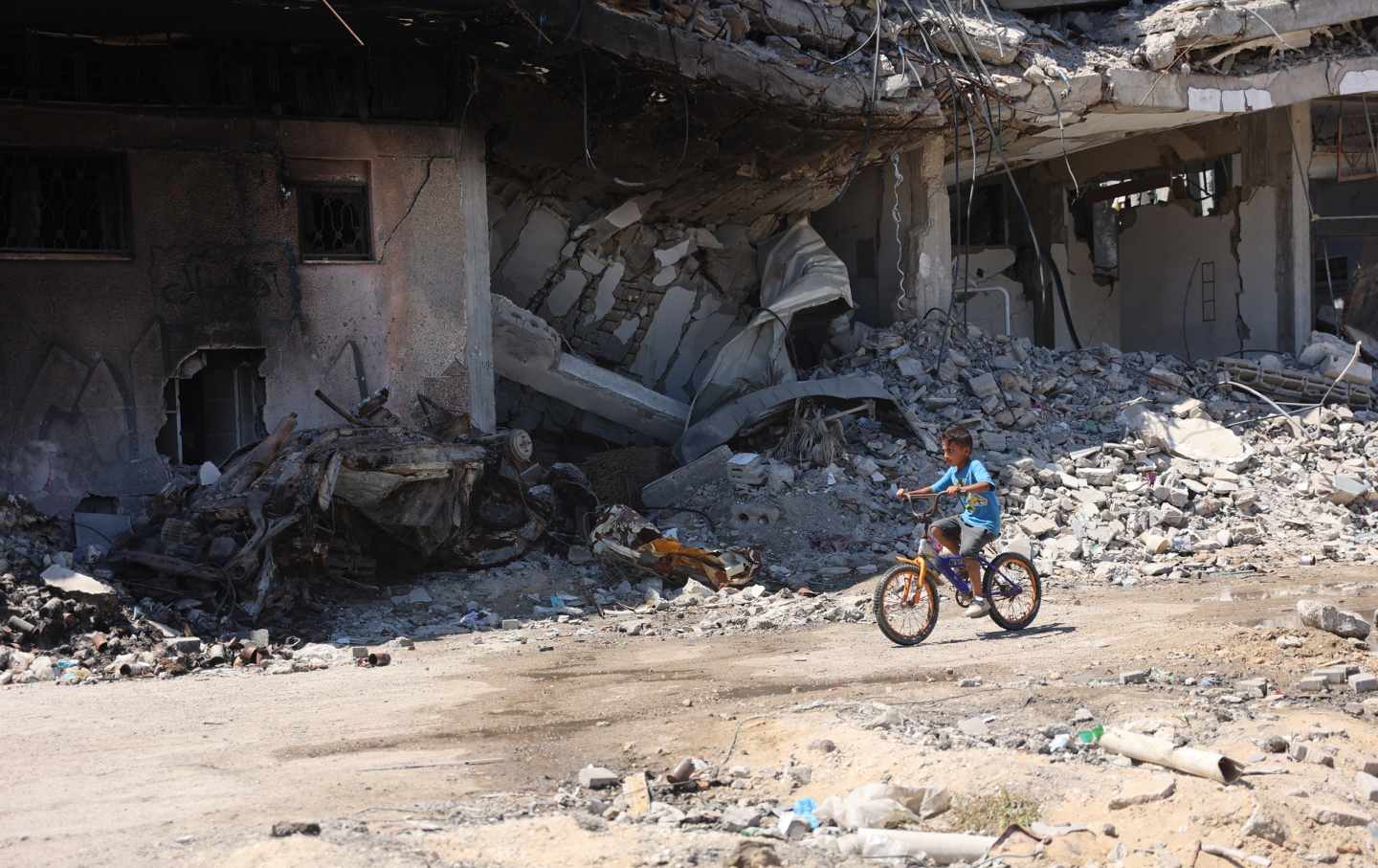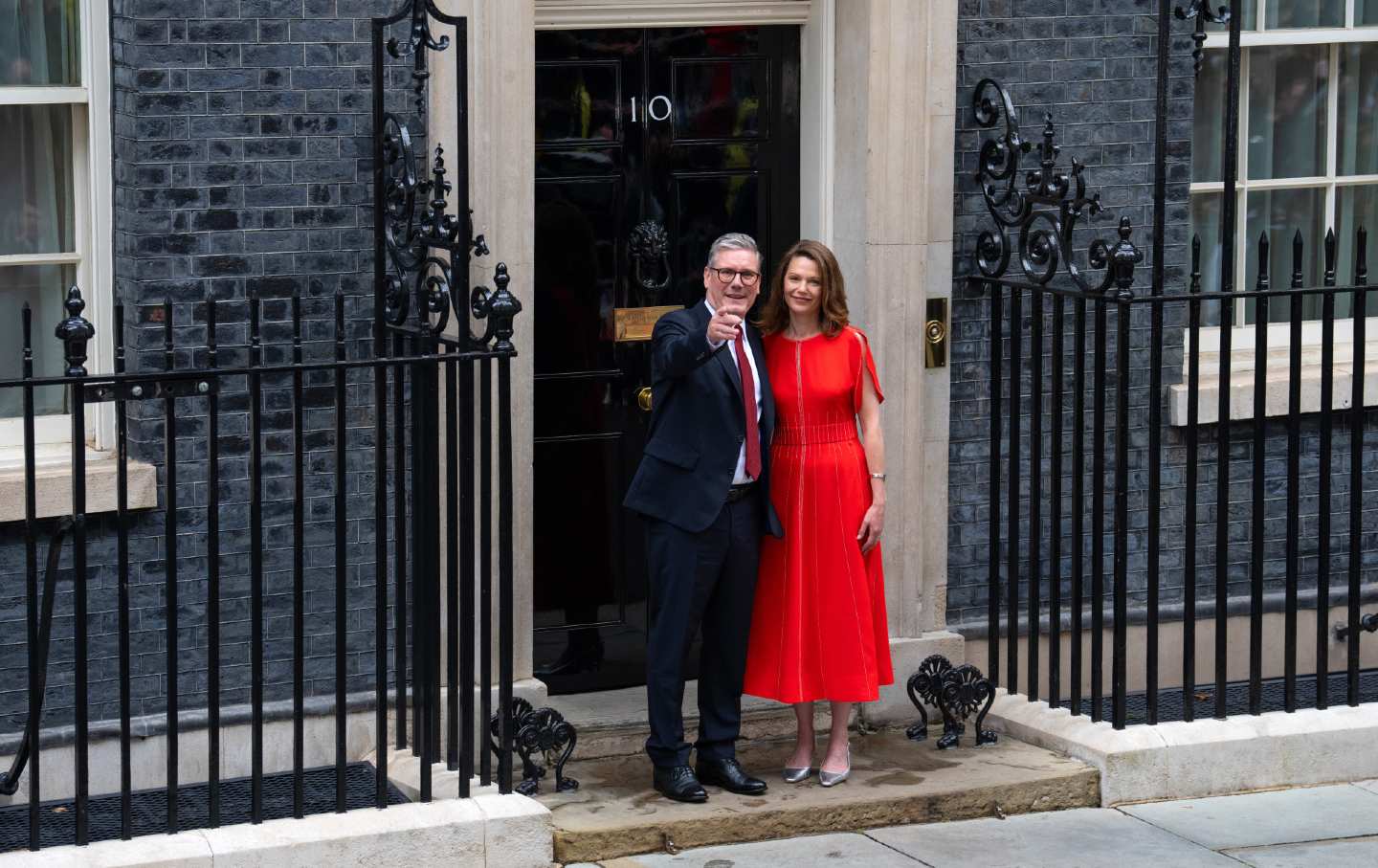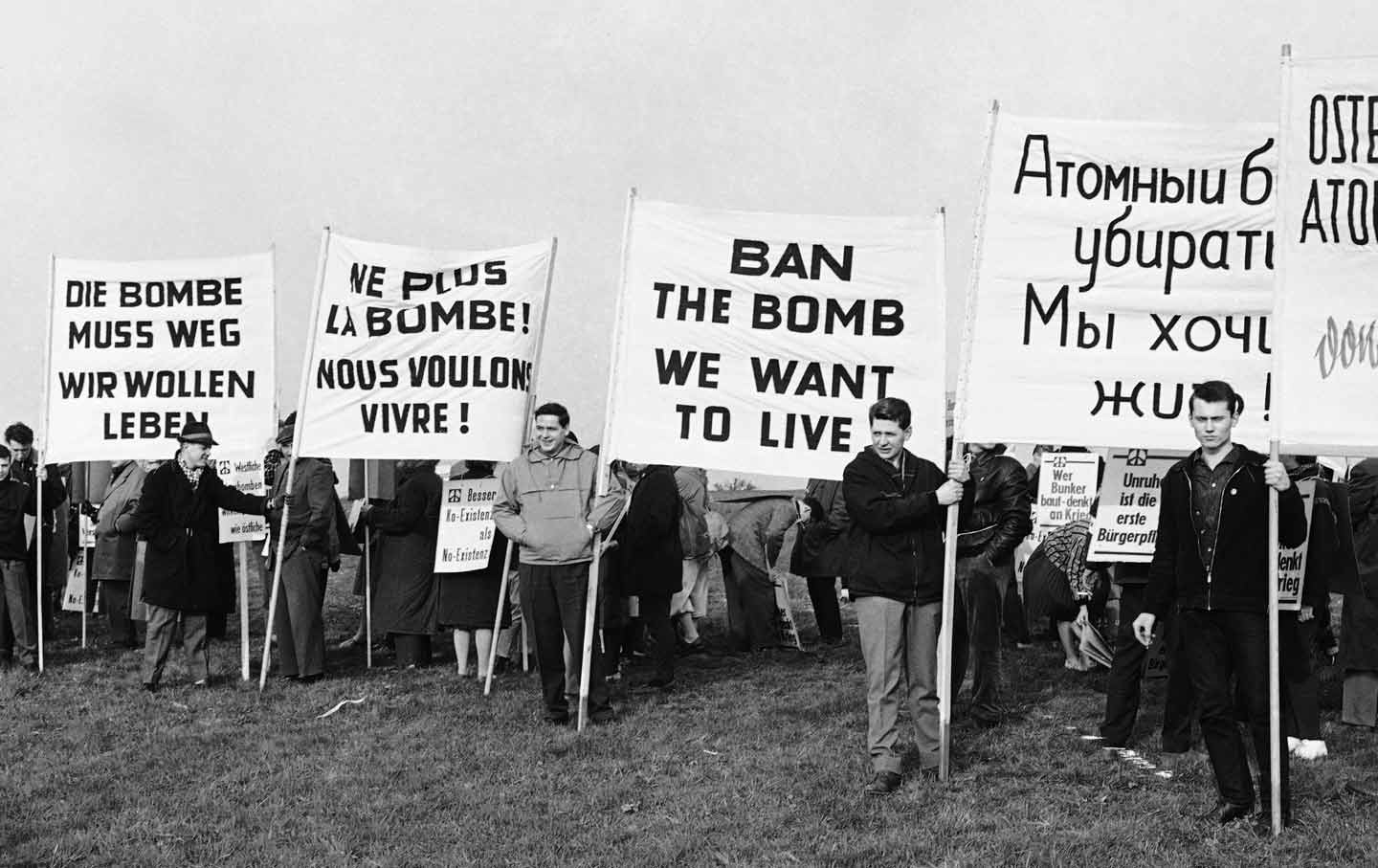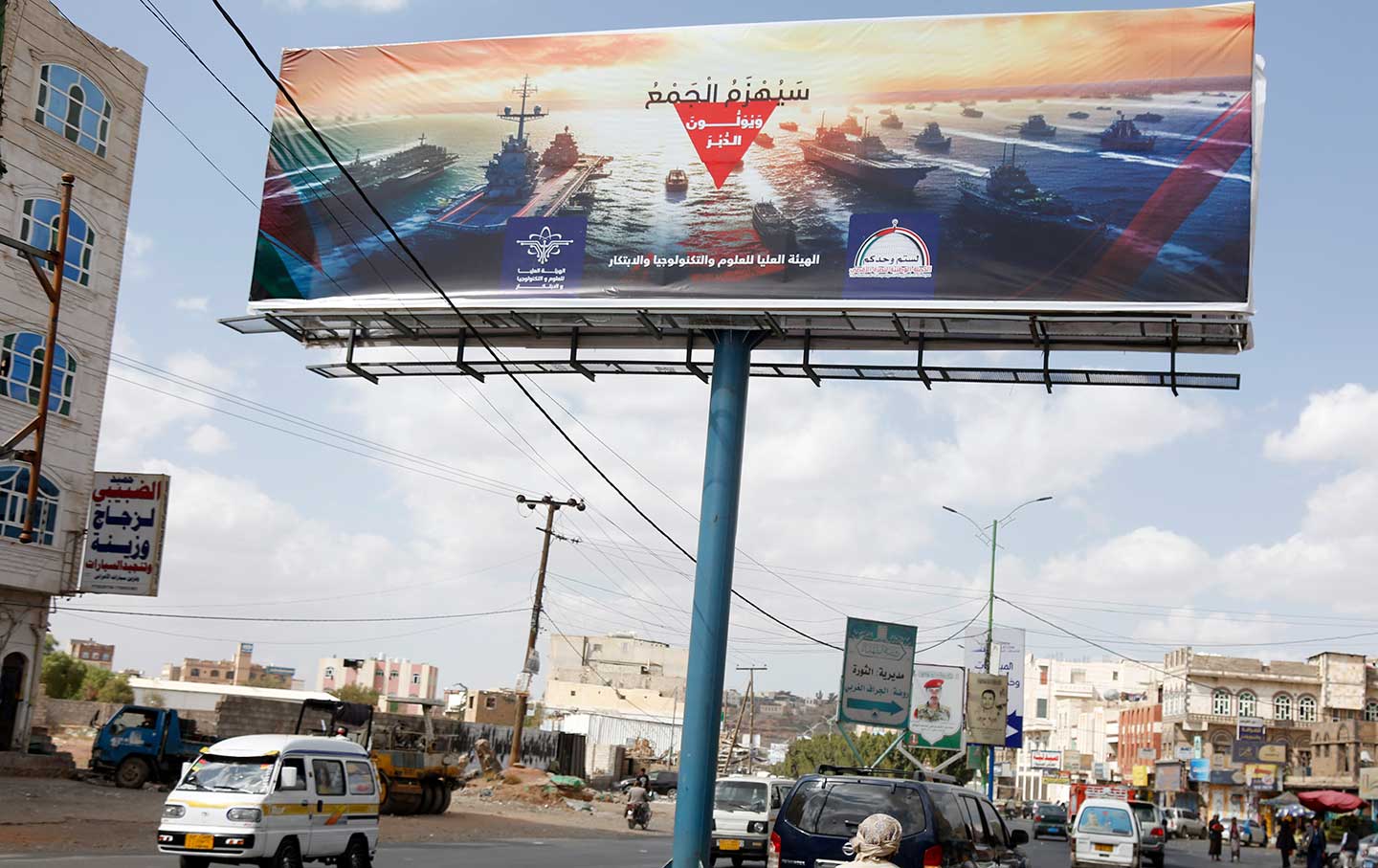The war has forced children in Gaza to grow up far too early

“Instead of playing and jumping around, he is thinking about how he can help us survive,” says one father.
A Palestinian boy rides his bicycle past buildings destroyed in an earlier Israeli bombardment in the Sheikh Radwan neighborhood, north of Gaza City, on July 3, 2024.
(Omar Al-Qattaa / AFP via Getty Images)
Mohammed is eight years old. He once dreamed of becoming an engineer like his father. But the ongoing fighting that has ravaged Gaza since October 2023 has significantly changed the innocent mentality of Mohammed, his siblings and countless other children.
Mohammed, his parents and his three siblings fled their home in Gaza City’s Al-Jalaa neighborhood on October 13. They first sought refuge in Khan Younis, then in Rafah, before finally ending up in a tent in Al-Mawasi, an area stretching from western Rafah to western Khan Younis that Israel considers a safe haven.
The constant threat of Israeli airstrikes and the horrific expulsion took a toll on Mohammed and his family. But nothing was more painful for his parents than watching their children lose their innocence and become old souls in young bodies.
Current topic

Mohammed, once an active and smart boy who loved to play football and help his grandfather with his business, has now been forced into adulthood far too early. The war has turned him into a child who knows more about survival than games. “Mohammed has become an expert at making fires for cooking, filling water cannons and sowing and watering seeds outside the tent,” his father said.
“Before leaving Rafah, Mohammed and I were walking through the streets of the city. When I stopped for a while to have a quick chat with my friend, I looked around and saw Mohammed walking a little further to collect wood from a destroyed house, even though I had not asked him to,” said Abu Mohammed, his father. “I asked him why he was collecting wood and he told me that we did not need to buy wood.”
“That moment broke my heart,” the father said. “Instead of playing and jumping around, Mohammed is thinking about how he can be frugal and help us survive.”
Before this war began, Umm Mohammed’s top priority was the education of her children. She was committed to encouraging her children, pushing them to study harder, and supporting them in their studies so that they could excel in school.
“I was always so happy when my children got full marks and was never satisfied when they were more than two points short,” she said. “I always wanted them to be better than anything else.”
But the children have not been in school for about eight months. Umm Mohammed sometimes tries to get Lama, the eldest, and her siblings to write a few sentences or do mathematical calculations. “Lama often succeeds, but Mohammed usually fails, and Rima has never managed it,” she says.
Lama is 11 years old. She is a smart and quiet girl who loves to draw and make accessories. She was also always the best in her class. Now she spends her time helping her mother cook on a wood fire or doing laundry. “Lama looks like she grew up in this war for eight years, not eight months,” her mother said.
However, Lama is a little luckier than her younger sister Rima. She was able to attend four grades of school, while Rima was not. Rima was supposed to have just finished her first grade. She cannot read or write well enough because she was only able to attend school for one month before Israel started its war on Gaza. Financial problems also prevented her from going to kindergarten, but her mother was determined to teach her. Umm Mohammed taught Rima letters and numbers at home and waited for the first grade to start so Rima could enroll in school for free.
Since October 2023, around 300,000 students have been unable to complete their education due to the merciless war in the Gaza Strip. For over seven months, they have been exposed to various forms of death, displacement, fear and hunger.
Umm Mohammed sometimes tries to get her children to recite the Quran, but even that usually seems difficult. Living in a tent basically feels like living outdoors. “It’s hard to keep the children focused as the environment is constantly chaotic and noisy. Everyone around you hears you, and you hear everyone in return,” she said.
Popular
“Swipe left below to see more authors”Swipe →
But despite all the despair, there is still hope. “We hold on to the hope that one day our children will be able to return to their schools, their books and their dreams,” said Abu Mohammed.
Thank you for reading The nation
We hope you enjoyed the story you just read. It is just one of the many incisive, deeply researched articles we publish every day. Now more than ever, we need fearless journalism that gets to the heart of important issues, exposes abuses and corruption, and amplifies voices and perspectives that often go unheard in the mainstream media.
In this crucial election year, when the media is banking on austerity and campus activism and union movements, independent journalism that gets to the heart of the matter is more important than ever. Donate now and help us hold the powerful to account, bring to light issues that would otherwise be swept under the rug, and build a more just and equitable future.
For almost 160 years The nation stands for truth, justice and moral clarity. As a reader-funded publication, we are not at the mercy of advertisers or corporate owners. But it takes financial resources to report on stories that can take weeks or months to thoroughly investigate, thoroughly edit and review articles, and deliver our stories to readers.
Donate today and join us in working towards a better future. Thank you for supporting independent journalism.
More of The nation

Keir Starmer has won a large majority in Parliament despite declining vote numbers for Labour.
Steve Howell
Joe Biden has distracted from the existential question that should determine this election.
Jeet Heer

“If you don’t believe nuclear weapons are a global problem, just ask the mayors of Hiroshima and Nagasaki.”
Quentin Hart

PEN America hides behind the false universalism of free speech, but institutions always choose who they protect.
comment
/
PE Moskowitz

The so-called Battle of Tihamah has already lasted seven months and, surprisingly, given the opponents, its outcome remains uncertain.
Juan Cole

To counter an authoritarian course, the Democrats cannot simply change their candidates. They must be courageous.
Eric Reinhart



